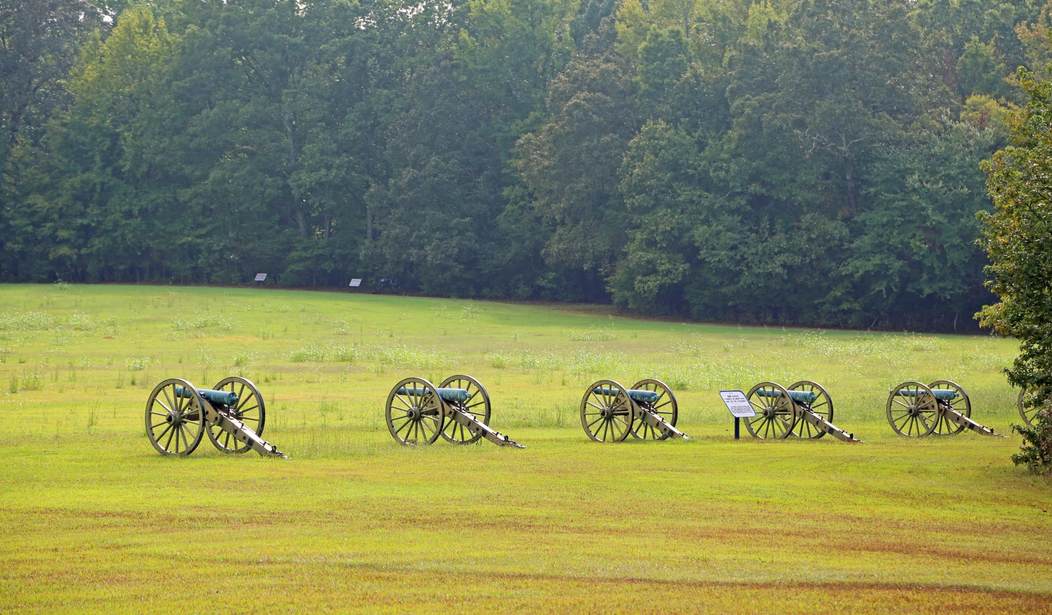Barry Thacker, the head of the Coal Creek Watershed Foundation, is upset by the notion that Tennessee’s history can be taught in tidbits and nuggets of information rather than having a full academic K-12 program devoted to teaching Volunteer State kids, among other things, why Tennessee is known as the Volunteer State.
“When you read about somebody from Tennessee, from right here in your own home, who did something important, it gives you a sense of pride in yourself and your community, and that needs to be preserved,” Thacker told WBIR-TV.
As part of a Tennessee State Board of Education review that is conducted every six years, an educator advisory team worked with K-12 teachers and members of the public to come up with new standards for the way social studies — history, civics, and geography — are taught in Tennessee.
The team received 63,000 online comments and 16,000 reviews, many of them from teachers who complained about the long list of topics they were forced to fit into their lesson plans under the umbrella of U.S. history.
If there is anything true about history, it is that more of it is made every day. It all adds up.
Teachers complained there wasn’t enough time to teach students everything mandated by the state Board of Education. Time spent in the classroom is not an infinite commodity.
So, the advisory team brought out its erasers and starting wiping out Tennessee history.
The Social Studies Standards Recommendation Committee has the advisory team’s plan. Public comments are being accepted until the panel’s next meeting Oct. 28. Then the plan goes to the state Board of Education.
Stewart Waters, an assistant professor of social science education at the University of Tennessee, told WBIR that overall he felt teachers would like the changes made by the advisory panel.
Of course, everyone in the state has their favorite historical nugget about Tennessee they can’t bear to have swept away and forgotten.
“In the past, there may have been a Tennessee history course that people have taken, so it’s going to be shocking to them to see that there’s not going to be a Tennessee history course and that, in fact, there are only going to be tidbits of Tennessee history integrated throughout the standards of K-12,” Waters said.
Well, that was an understatement.
Some Tennesseans have been absolutely enraged by the team’s recommendations. The plan includes eliminating a number of Civil War battles from the curriculum, dropping any mention of the Cherokee origins of the name the state, and erasing the story of the Highlander Folk School on Monteagle where the Rev. Martin Luther King Jr. and Rosa Parks, among others, received their civil rights training.
The story of how a couple of Chattanooga lawyers locked up the franchise rights to a new, bubbly soft drink called “Coca-Cola” in the 19th century would also not be part of the lesson plan for teachers.
Senate Speaker Ron Ramsey, House Deputy Speaker Steve McDaniel and three other top GOP lawmakers wrote a letter of complaint to the Social Studies Standards Recommendation Committee in which they declared it was “vital that students know the Tennessee story.”
“Tennessee history is critically important to the civic health of our state,” the Times-Press reported the five Republicans wrote. “Tennessee history is not trivia.”
Jason Roach, the chairman of the Tennessee Standards Recommendation Committee, and vice chairman William Freddy Curtis defended the panel’s work in a guest column that ran in several state newspapers, including the Tennessean.
“(The) educator advisory team worked relentlessly to represent the core values of Tennesseans,” Roach and Curtis wrote, “while also understanding the need to address a variety of historically relevant topics throughout the social studies curriculum.”
That is not good enough for Barry Thacker. He and the Coal Creek Watershed Foundation not only are campaigning against the idea that history instruction should be trimmed to fit better in teachers’ lesson plans, but they want to end the status of “elective credit” to which Tennessee history was relegated 15 years ago.
Thacker, through the Foundation website’s home page, has called for Tennessee’s history to be incorporated into each grade, and not simply offered, as the advisory team plan recommends, as an elective in high school.
Tennessee Gov. Bill Haslam, who described himself as a “historian by heart and by degree,” shares Thacker’s concerns.
“History matters a lot to me,” Haslam said.
But the Republican added that the Tennessee Board of Education’s effort to trim the state’s history lessons into manageable chunks of education is worth the effort.
“At the end of the day I’m certainly hopeful they can leave some time to focus on Tennessee history,” Haslam told the AP. “But we understand the struggle when it comes to curriculum time and what you just physically don’t have time for.”









Join the conversation as a VIP Member